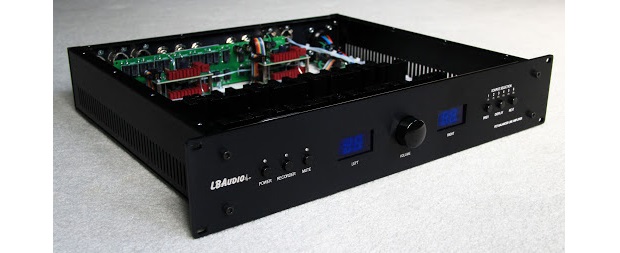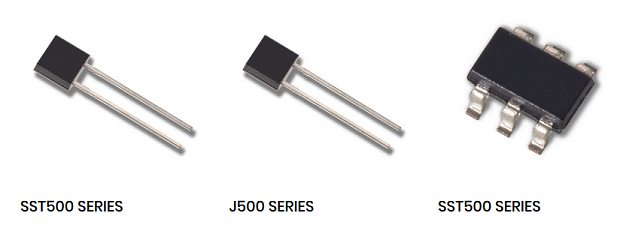Below is our recent interview with Tim McCune, President of Linear Systems:
Q: What’s the best thing about Linear Systems that people might not know about?
A: Our history. The founder of Linear Systems, John H. Hall, learned from William Shockley, who won the Nobel Prize for his semiconductor discoveries, and Jean Hoerni, who invented the semiconductor planar process. Hoerni recruited Hall to co-found Union Carbide’s semiconductor division in 1962, and they co-founded Intersil in 1967. Hall left Intersil to found Micro Power Systems, and many of the devices at Linear Systems have their roots in technology developed by Hall at those companies. This technology forms the basis of Linear Systems’ Improved Standard Products® line of high-performance components, as well as the company’s line of unique products.
 Recommended: COVID-19 Pandemic May Delay Arrival Of Autonomous Vehicles, But Future Remains Bright For AV Industry
Recommended: COVID-19 Pandemic May Delay Arrival Of Autonomous Vehicles, But Future Remains Bright For AV Industry
Q: Can you provide a brief overview of Linear Systems’ product line?
A: Linear Systems focuses on designing and building relatively small volumes of parts that meet highly demanding performance requirements, and all our parts are the world leaders in their respective classes. Our product line includes: Junction Field Effect Transistors (JFETS); Bipolar Transistors; DMOS switches; small-signal MOSFETs; Pico-Amp Diodes (PADs); and Voltage-Controlled Resistors (VCRs). Most of the world’s sensors rely upon precise amplification of minute signals produced by a front-end device such as a piezo crystal or microphone element. With our JFET parts, which can have as little as a billionth of a volt of noise in operation, Linear Systems helps companies build the best possible sensors at a time when interconnected systems depend more and more on them. These same semiconductor capabilities enable test equipment and medical companies to build leading-edge systems.
Linear Systems’ small-signal MOSFETs provide another dimension for sensor manufacturers seeking ultra-low-noise front-end amplification. We also produce BiFETs, which combine a P-Channel MOSFET and an NPN Bipolar Transistor on the same chip for special sensor applications.
Our NPN and PNP bipolar transistors are monolithic dual devices that have tightly matching characteristics, log conformance and low noise. Some of the most demanding test equipment, audio amplifier and other companies in the world rely on us for these parts.
We also produce the most reliable high-performance DMOS switches in the industry. Linear Systems took over Siliconix’s DMOS line in 2001, acquiring the production resources to continue making these industry-leading products. These lateral DMOS switches are key components in a variety of high-performance analog circuits where ultra-fast, nano-second switching times are critical. Linear Systems is the only company to build these lateral DMOS parts using Siliconix’ proprietary polysilicon gate technology and is the only Vishay/Siliconix-approved replacement manufacturer.
Linear Systems’ investment in testing capabilities is a key part of providing a wide range of useful products. One of Linear Systems’ important services is our ability to provide precise electrical selections of our parts to match specific customer requirements. This enables our customers to reach even higher levels of performance.
Q: What Linear Systems is doing and what new products have been recently launched?
A: The demand for more capable, more sensitive sensors is always increasing, and Linear Systems is focused on creating more capable semiconductors that are a big part of that. We’re both introducing new devices while at the same time improving the performance of ones already on the market.
Specific new products we’ve put out are the LSJ689 – the only dual P-Channel JFET in production – and lower-cost versions of our LSK/LSJ line of ultra-low-noise JFETs. We’re also putting out a line of Voltage-Controlled Resistors, devices that enable lower-power, lower-cost designs in some applications.
Standard products are a big part of our business, and we’ve applied advanced production techniques to provide better performance to our Improved Standard Products® line. For example, our JFETs and small-signal MOSFETs have about half the noise of the same part number made by other manufacturers.
Also, we’re continually upgrading our testing capabilities so we can select products with very specific performance characteristics to meet customer requirements. This essentially takes standard products and gives them custom performance. We recently created the largest sub-nanovolt noise testing capability in the history of the industry, something that enables us to screen hundreds of thousands of parts to specific noise levels. This unprecedented quality control capability ensures only conforming parts are shipped for assembly.
 Recommended: Commence Corporation Helps Small Businesses Harness The Power Of CRM Software
Recommended: Commence Corporation Helps Small Businesses Harness The Power Of CRM Software
Q: Who is your ideal customer and why?
A: Our slogan is, “World-Class Products Need World-Class Parts,” and our ideal customer is one that designs and builds best-in-class electronics. Our business model is to provide parts to companies building the best products so they can afford to put the best parts into them. Those are our ideal customers.
Q: What can we expect from Linear Systems in next 12 months?
A: Though we’re a relatively small company, we’ve assumed the industry leadership role in the creation of new, higher-performance JFETs. We’ll be releasing at least several new products in the next 12 months based upon requests from customers and our developing new production and design capabilities. This will include new JFETs and VCRs, and perhaps new offerings of bipolar transistors.
We’re also continually working to improve the performance of all of our existing products. We’re conducting a range of production R&D aimed at providing lower noise, lower leakage and other measurable improvements with respect to key parameters. Initial tests related to this R&D indicate in the next 12 months we’ll be making even better products, across the board, than we are today.

